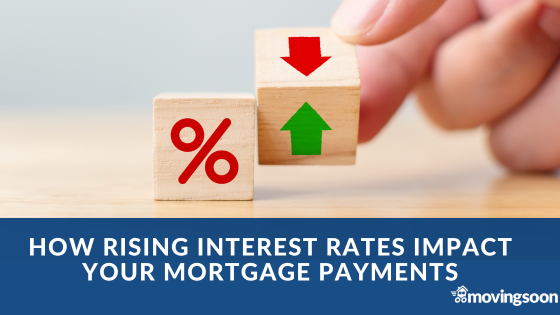Rising interest rates may impact your mortgage payments. This doesn’t matter as to whether you’re a recent first time buyer, got you foot back onto the property ladder or have had a mortgage for a long time.
Depending when you got your mortgage you may be on monthly payments with low or high interest rate payments. As the saying goes, the only constant in life is change. One significant change that can shake up your financial stability is rising interest rates.
In this blog, we’ll delve into the intricacies of how increasing interest rates may affect your mortgage payments in the UK. We’ll explore the differences between fixed rate, variable rate, and standard variable rate mortgages.
Understanding the Basics
Before we dive into the impact of rising interest rates, let’s quickly refresh our memory on the different types of mortgages commonly found in the UK market:
Fixed Rate Mortgages
With a fixed rate mortgage, your interest rate remains unchanged for a set period, typically two to five years. This offers stability and predictability. Your monthly payments stay consistent regardless of fluctuations in the broader interest rate environment.
Variable Rate Mortgages
In contrast to fixed rate mortgages, variable rate mortgages are linked to the Bank of England’s base rate. As this rate fluctuates, so too does your mortgage interest rate and, consequently, your monthly payments.
Standard Variable Rate (SVR) Mortgages
SVR mortgages are the default rate offered by lenders once any initial fixed or variable rate period ends. These rates are typically higher than introductory rates and can vary between lenders.
The Impact of Rising Interest Rates
Now, let’s explore how rising interest rates can affect your mortgage payments under each type of mortgage:
Fixed Rate Mortgages
If you’re on a fixed rate mortgage when interest rates rise, you’re in luck at least temporarily. Since your interest rate is locked in, your monthly payments remain unchanged for the duration of the fixed term. However, once your fixed term ends, you’ll likely transition to your lender’s SVR. This could result in higher monthly payments if interest rates have risen significantly during your fixed term.
Variable Rate Mortgages
For those on variable rate mortgages, rising interest rates spell immediate changes to your monthly payments. As the benchmark interest rate increases, so does your mortgage rate, leading to higher monthly payments. This can put strain on your finances, especially if the rate hikes are substantial and unexpected.
Standard Variable Rate (SVR) Mortgages
If you’re already on an SVR mortgage, rising interest rates mean higher monthly payments right away. SVR mortgages are influenced by market conditions. So any increase in the base rate is likely to be passed on to borrowers. This can catch some homeowners off guard, particularly if they’ve become accustomed to lower payments during periods of low interest rates.
Navigating the Impact
Now that we understand how rising interest rates affect different types of mortgages, let’s discuss some strategies for navigating these changes.
Monitor the Market
Stay informed about economic indicators and central bank announcements that could signal changes in interest rates. Being proactive allows you to anticipate potential rate hikes and prepare accordingly.
Consider Remortgaging
If you’re on a variable rate mortgage or nearing the end of your fixed term, explore the option of refinancing to secure a more favourable rate. Refinancing can offer stability in a rising rate environment and potentially lower your monthly payments.
Budget Wisely
Prepare for potential increases in your mortgage payments by revisiting your budget and identifying areas where you can cut back or reallocate funds. Building a financial buffer can help cushion the impact of rising interest rates on your monthly expenses.
Seek Professional Advice
Don’t hesitate to consult with an independent financial advisor or mortgage broker who can provide personalised guidance based on your specific circumstances. They can help you assess the impact of rising interest rates on your mortgage and explore strategies to mitigate any adverse effects.
Final Thoughts: How Rising Interest Rates Impact Your Mortgage Payments
Rising interest rates can send ripples through the housing market, impacting mortgage payments for homeowners across the UK. Whether you’re on a fixed rate, variable rate, or SVR mortgage, understanding how these rate hikes affect your monthly payments is crucial for financial planning. By staying informed, exploring refinancing options, budgeting wisely, and seeking professional advice, you can navigate the waves of rising interest rates with confidence and minimize the impact on your financial wellbeing.


